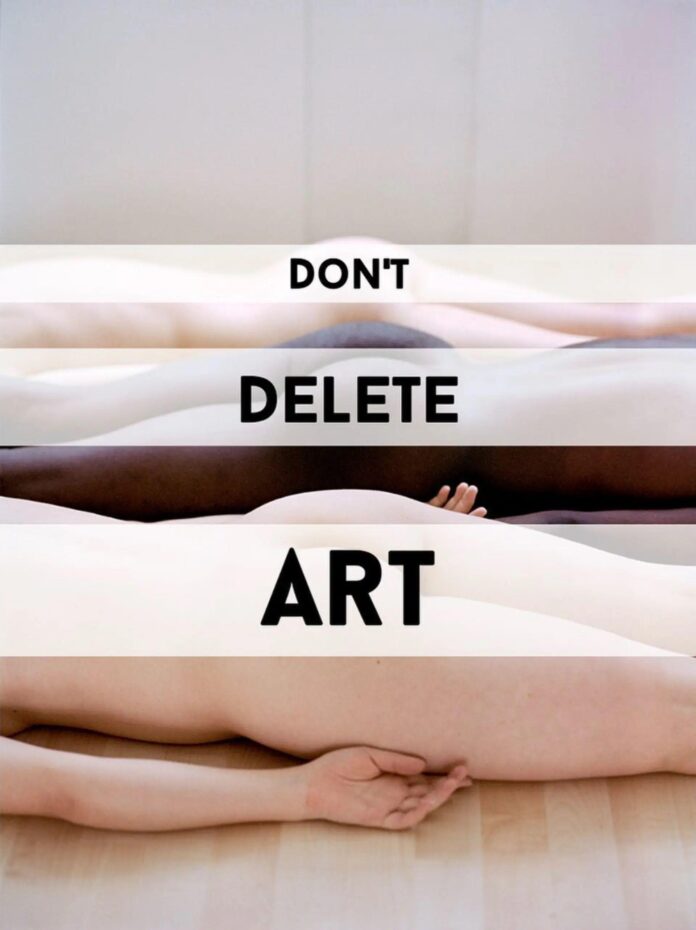A coalition of art workers is calling on the art world to push back against social media censorship with a day of action targeting technology companies. Don’t Delete Art, a group formed in 2020 to defend artistic freedom online, has planned for both online and in-person rallies to urge platforms like Instagram to revise their content-moderation policies to better serve the arts. Its members will gather outside major museums in New York throughout the day on Thursday 15 June, and are encouraging artists to post images of their work with a “Don’t Delete Art” sticker on their social media pages.
“Unfortunately, art is arbitrarily suppressed or taken down—often due to opaque and inconsistent content moderation and appeal processes,” Julie Trebault, director of PEN America’s Artists at Risk Connection (ARC), said in a statement. “Social media companies need to do better. Digital spaces are one of the last vanguards for artists to safely post their work and reach large audiences, particularly as repression and censorship increase worldwide.”
The community standards of social media websites are intended to make the internet a safer place for all. But policies around nudity, sexual activity and other content deemed objectionable have also led to the flagging and deletion of images of artworks and even the wholesale removal of artists’ accounts. The artist Betty Tompkins has repeatedly had works censored by Instagram and was blocked from the platform for several days in 2019. In 2021, the social media giant removed an image of a promotional film poster for director Pedro Almodóvar’s film Madres Paralelas, which depicted a lactating nipple, for breaking “rules against nudity”. Instagram later reversed course, saying that the image showed “clear artistic context”.
These erasures, which are frequent and often permanent, occur despite companies’ provisions for creative expression. Meta, which owns Instagram and Facebook, makes allowances for some art including “adult sexual activity in digital art” that can be shown to individuals 18 and older. Such community guidelines remain “overly restrictive and unclear”, members of DDA argue in a manifesto released last February. The statement urges a reconsideration of restrictions related to art, a review of alleged violations and an improved appeals and notifications process.
To advance support for its cause, the coalition, which includes ARC, the National Coalition Against Censorship’s (NCAC) Art & Culture Advocacy Program, and the international organisation Freemuse, will gather outside five art institutions on 15 June to hand out campaign materials and gather signatures for the manifesto. Starting at the Whitney Museum, they will move to Parsons School of Design, Magnum Foundation, the New Museum and the International Center of Photography Museum. Their final stop is Meta’s New York offices at 770 Broadway to deliver the manifesto’s demands, in addition to records of instances where the company’s policies have failed artists.
“We have documented instances in which artists have been penalised for posting images of award-winning work and work that has been commissioned by revered museums,” Elizabeth Larison, director of the NCAC Arts & Culture Advocacy Program said. “The impact of such policies is especially devastating to artists in early and mid-career who lack gallery representation and artists who live under oppressive regimes.”
Artists are also encouraged to spread the word online by posting images of their artwork, covering up details that platforms may deem objectionable with digital stickers of DDA’s logo, which are available on Giphy. The action is intended to draw attention to how artists have a tendency to self-censor to appeal to social media algorithms, DDA says, whether by obscuring or blurring parts of an image.

























